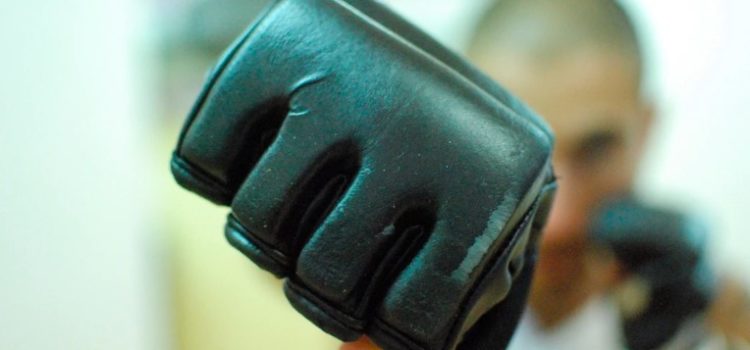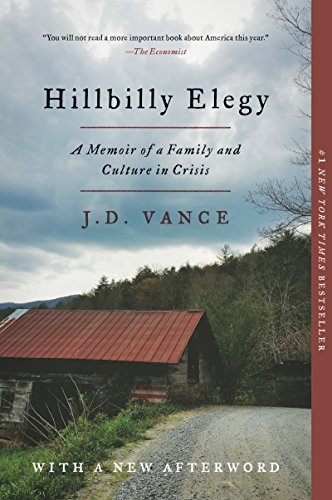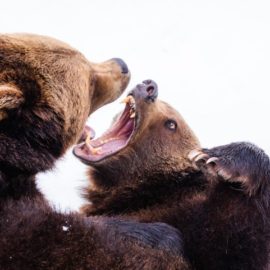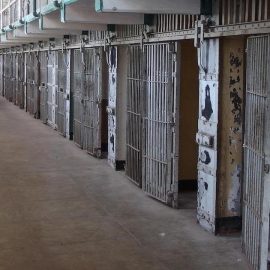

This article is an excerpt from the Shortform summary of "Hillbilly Elegy" by JD Vance. Shortform has the world's best summaries of books you should be reading.
Like this article? Sign up for a free trial here .
What is a culture of honor? What role does it play in JD Vance’s Hillbilly Elegy?
A culture of honor is a culture that encourages its members to defend their honor through retribution and violence. It’s characterized by an extreme unwillingness to tolerate personal insults and a high propensity, particularly on the part of males, to defend one’s reputation.
Learn more about the culture of violence and how it characterizes life in Appalachian Ohio.
Hillbilly Elegy and the Culture of Honor
Beyond just being the story of JD Vance’s life, Hillbilly Elegy is a broader social commentary and a critique of hillbilly culture. Vance argues that hillbilly culture, as lived and practiced in post-industrial towns across Appalachia like where he grew up, has come to celebrate self-destructive and antisocial behavior. He contends that this behavior and a certain set of attitudes are severe hindrances that prevent white working class people from acknowledging the problems in their families and their communities and make it difficult for people to succeed outside of that culture.
Culture of Honor
Too many in JD’s community, particularly males, lived by an outmoded “culture of honor” that demanded violent retribution be meted out to anyone who offered the slightest insult or sign of disrespect. Growing up, he heard stories about how close relatives had beaten and shot people in the course of disputes. This was celebrated as a noble cultural characteristic, and JD became an ardent practitioner. When a boy broke up with his sister, he saw it as his duty to violently attack the young man. When someone insulted his grandmother on the schoolyard, his sense of family loyalty and honor compelled him to start a fight. Looking back, JD now sees this behavior as self-destructive: the rest of the world does not resolve mild disputes or disagreements through violence. Growing up in this world stops young people from knowing how to resolve conflicts in a healthy way and renders them unable to function outside of it.
Culture of Honor and the Toy Store Brawl
In one illustrative example of the culture of honor, Vance recounts a story that subsequently became family legend. His grandparents were in a department store in Middletown with their son when the boy started to play with one of the toys on display.
When the clerk asked the boy to put the toy down and leave the store, Papaw and Mamaw went berserk: smashing the merchandise and physically threatening the clerk, saying “If you say another word to my son, I will break your fucking neck.”
This display of violent anger and utter disregard for social norms was shocking to the Ohioans who witnessed the scene, but it was a matter of basic pride for Vance’s family. The parents were merely defending his son against a stranger who had slighted the family’s honor by telling him where he could and couldn’t go. This was just what any self-respecting hillbilly would do when an outsider messed with their child.
Shortform note: This scene of violence and anger in response to a relatively mild slight may have its roots in what historians and sociologists have called the “Southern culture of honor.” It’s characterized by an extreme unwillingness to tolerate personal insults of any kind and a high propensity, particularly on the part of males, to defend one’s reputation with violence.
Cultures of honor are common in places where the rule of law and the control of centralized authorities have been historically weak: like the remote parts of the British Isles from which the hillbillies’ Scots-Irish ancestors came. These values were easily transplanted to the remote, rugged world of Appalachia. In turn, the hillbillies brought these values with them when they migrated to other regions of the United States.
For more on culture of honor, see our summary of Outliers by Malcolm Gladwell.
Learning to Brawl in a Culture of Honor
This social context encouraged—in fact, demanded—that a young man like JD enforce and uphold hillbilly justice himself. Loyalty to family, upholding one’s honor, and demonstrating toughness were the core values of this “justice” system.
Accordingly, casual insults to one’s family (especially its female members) demanded a violent response: when a schoolyard bully directed some slander at JD’s grandmother, JD earned a bloody nose defending his family’s honor on the schoolyard.
The social expectation was that young men should resort to violence to avenge any insult towards the family, whether the insult was intended or not. When his older sister Lindsay was dumped by her boyfriend, custom demanded that JD brawl with her ex to maintain the family’s dignity. Even though he proceeded to lose the fight (badly), he was rewarded for his display of violence by Mamaw, who told him that he had done the correct and honorable thing.
Later, Mamaw would teach JD fighting tactics designed to inflict maximum damage on his opponents. While she encouraged him to only fight to defend himself, she generally approved of the use of violence to solve disputes, telling JD, “Sometimes, honey, you have to fight, even when you’re not defending yourself. Sometimes it’s just the right thing to do.” This is the culture of honor.
———End of Preview———

Like what you just read? Read the rest of the world's best summary of "Hillbilly Elegy" at Shortform . Learn the book's critical concepts in 20 minutes or less .
Here's what you'll find in our full Hillbilly Elegy summary :
- The hallmarks of hillbilly culture and why they hold people back
- How JD Vance broke out of his hillbilly childhood and graduated from Yale
- Why the author thinks hillbillies might be beyond saving






